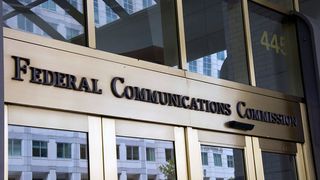FCC, FTC Sign on to 'Net Monitoring Framework

On the same day the FCC voted to roll back net regs and return oversight of most broadband practices to the FTC, the two agencies signed a joint memorandum of understanding (MOU) that the FCC will continue to provide guidance and work with the FTC.
The agencies unveiled the MOU earlier in the week, to boos and cheers, depending, but had not signed it.
That is, in part, meant to address the concerns that the FCC was abdicating its subject matter expertise in eliminating its rules against blocking, throttling and paid prioritization and making the FTC the principal net neutrality cop on the beat using its unfair methods and unfair or deceptive acts authority.
Related: GOP-Led FCC KO's Title II
That means the FTC could conclude that some forms of paid prioritization, artificially slowing traffic then charging to speed it up again, was unfair, whether or not the practice was disclosed, as the FCC is requiring under its new net neutrality-lite reg regime.
The abdication of subject matter expertise was one of the arguments made by critics of the FCC rule rollback proposal, and is expected to be raised in legal challenges to the rules, which will be likely be coming thick and fast in the coming weeks.
"The Agencies recognize and acknowledge that each agency has legal, technical, and investigative expertise and experience that is valuable for rendering advice and guidance to the other relating to the acts or practices of Internet service providers."
Under the MOU, the FCC will "monitor the broadband market and identify market entry barriers by, among other activities, reviewing informal complaints filed by consumers [the FTC will have to deal with the formal complaints], and will investigate and take enforcement action as appropriate with respect to failures by an Internet service provider to comply, in whole or in part, with the Internet Freedom Order’s requirements to file with the FCC or display on a publicly available, easily accessible website the specified subjects of disclosure."
Related: FCC, FTC Will Collaborate on Monitoring Open Internet
Broadcasting & Cable Newsletter
The smarter way to stay on top of broadcasting and cable industry. Sign up below
While there will no longer be rules against blocking, throttling or paid prioritization--and ISPs have agreed not to engage in the first two, for sure--ISPs will be required to disclose what they are doing. The FCC can enforce those disclosures, and punish those who fail to disclose. The FTC can go further and take action--investigate and file suit--against such a practice if it concludes it is unfair or deceptive or otherwise anticompetitive.
Contributing editor John Eggerton has been an editor and/or writer on media regulation, legislation and policy for over four decades, including covering the FCC, FTC, Congress, the major media trade associations, and the federal courts. In addition to Multichannel News and Broadcasting + Cable, his work has appeared in Radio World, TV Technology, TV Fax, This Week in Consumer Electronics, Variety and the Encyclopedia Britannica.

